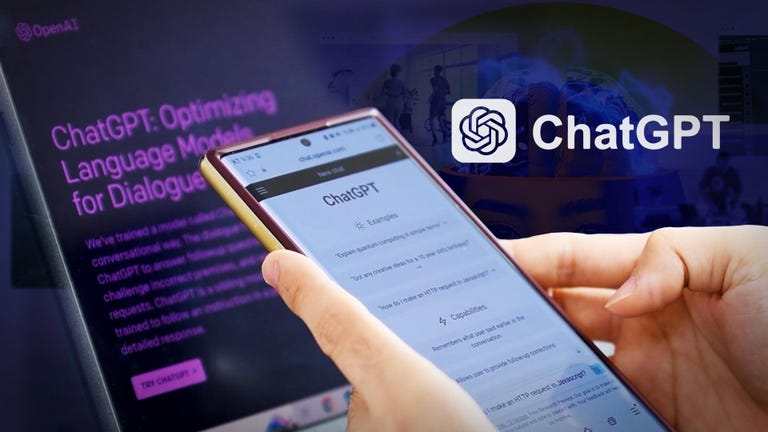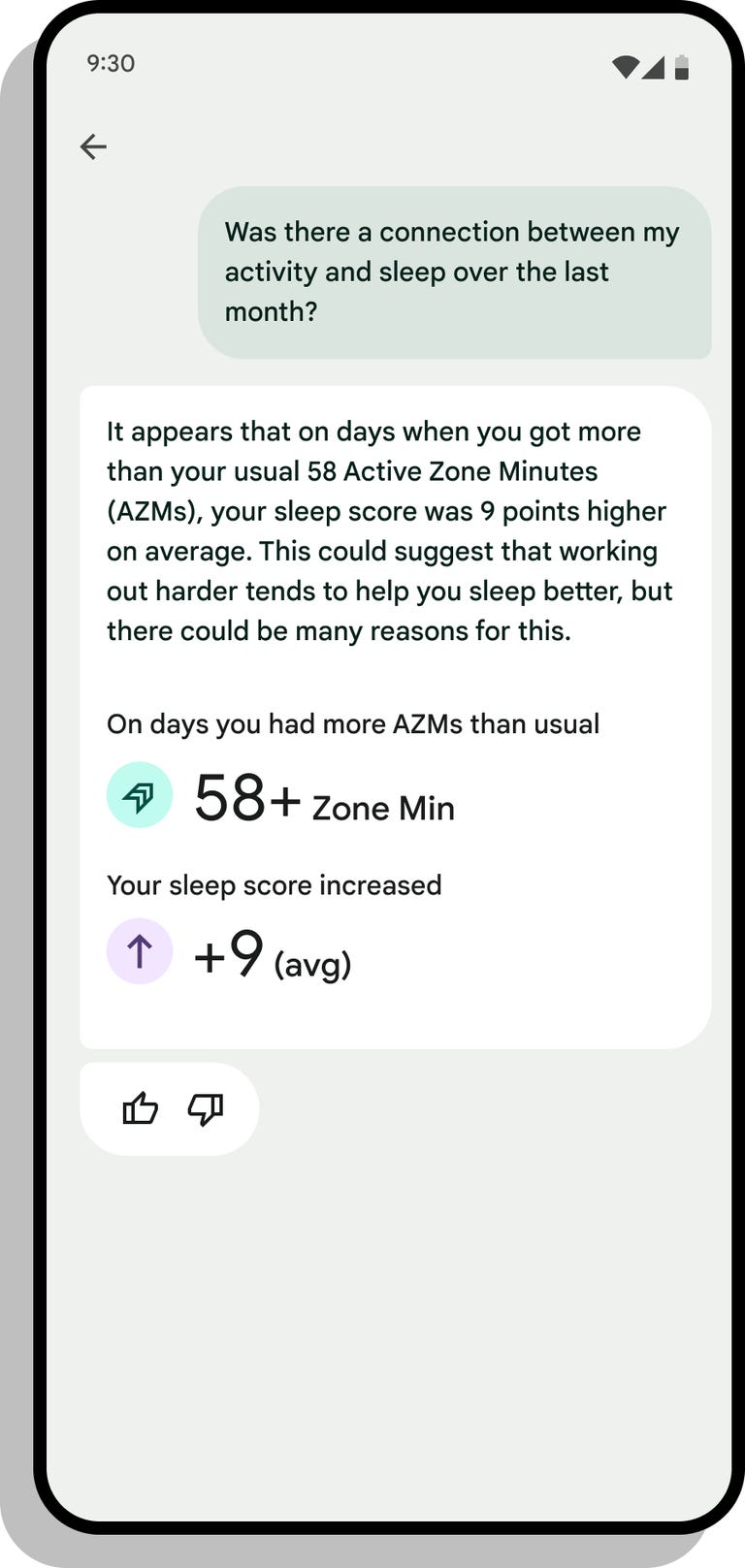Google’s AI models can already generate images and answer questions. Next, it wants to be your health coach.
Google on Tuesday announced that it’s developing a Personal Health Large Language model based on its Gemini models to analyze Fitbit data so that it can provide wellness advice and recommendations. Google hasn’t shared details on when the model will be integrated into products, although a company representative says the new model will power its upcoming experimental Fitbit Labs program and other AI features in the future. Still, the announcement provides further insight into its future plans for bringing generative AI to its Fitbit and Pixel devices.
Read more: Smart Rings Are Picking Up Where Fitness Trackers Left Off


An example showing the type of information Fitbit Labs will be able to provide.
The announcement comes as Google’s Gemini AI model has come under scrutiny for creating images of people that were historically inaccurate. This mishap was a reminder that generative AI models and chatbots still struggle with issues like hallucination and bias, meaning the information they provide isn’t always trustworthy.
During a press briefing, Thng addressed such concerns by noting that tools based on the Personal Health Large Language Model will be launched as experimental Labs features, allowing Google to gather feedback before rolling the tech out more widely. In addition to understanding physiological data, Thng also said the model has been trained to use tools appropriately. That means it should understand concepts that might appear in prompts like “best,” “worst” and “highest” and calculate the math accordingly.
There are still many unanswered questions about Google’s new health model, including when it will arrive and which products we’ll see it in. Another important question is whether this model will be capable of running on-device or if it will require an internet connection.
On-device processing is generally considered to be more secure since data never has to leave your device, a principle Apple was very vocal about when announcing Siri’s ability to answer health-related questions on the Apple Watch Series 9. But running the model in the cloud would allow these generative AI-powered features to run on a broader range of devices, including older phones that may not be powerful enough to run advanced AI models locally.
We’re expecting to learn more about the company’s generative AI plans during Google I/O, its annual developers conference where it often shares crucial updates regarding its products and technologies.
Editors’ note: CNET is using an AI engine to help create some stories. For more, see this post.


